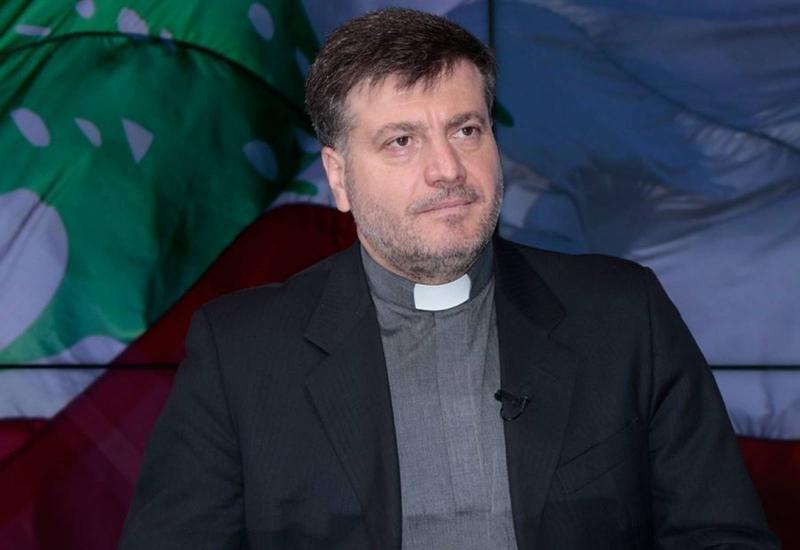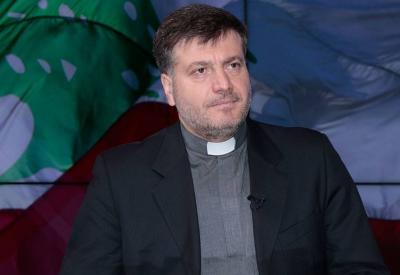The General Secretary of Catholic schools, Father Youssef Nasr, issued a statement saying: "Dear heads of our schools, I hope you are well. I wish to clarify the reasons that led the Episcopal Committee for Catholic Schools to decide on an open-ended strike, which you have the right to understand.
- First, the Union of Private Educational Institutions, including the General Secretariat of Catholic Schools, previously submitted in writing at the meeting of the Educational Parliamentary Committee its reservations about the proposed law and its dangerous consequences for the components of the educational family. These concerns were recorded in the minutes of the session held at the time but went unheard.
- Second, the proposed law discussed in the parliamentary committee meeting differs from what was passed at the last minute in the issued law, as items were added that were not discussed with the Union of Educational Institutions and the General Secretariat of Catholic Schools, especially what was stated in the third paragraph that was approved in the law.
- Third, this legislation is partial and incomplete, as there are many other issues that were not addressed and require laws to resolve them. For example, the Compensation Fund, as a private institution of public benefit, is not legally allowed to receive foreign currency, nor is it allowed to pay foreign currency as an end-of-service compensation or pension. The Compensation Fund provides compensation or retirement benefits based on the legal salary of the teacher, which is still subject to the salary series established in Law 46/2017. The contracted teacher does not benefit from the Compensation Fund for end-of-service compensation, so why obligate them to pay an 8% fee? Can the legislator require a person to contribute to a fund from which they do not benefit? What about the contracted teacher who works in more than one school? What about trainee teachers?
- Fourth, there are many questions that need to be answered. Based on what study was the percentage increased from 6% to 8% on schools and on teachers included in the staff, and an 8% fee added on to the contracted teacher? On what basis was the 8% determined for foreign currency assistance? Where are the actuarial studies that established the need for this? Then how can a law be approved regarding the Compensation Fund when its management is not aware of it, as stated by its director? Does the Lebanese state deduct the same percentage from the incentives offered to its employees? Who monitors the spending of funds in the Compensation Fund, particularly when we have a board that has been managing operations since 2019? What is the mechanism for disbursing funds from the Compensation Fund, especially since the law does not specify any mechanism for that?
- Fifth, the law provides for the transfer of 2% of the Compensation Fund's capital to the pension fund. On what basis was this percentage determined? What is the actuarial study that dictated that?
- Sixth, does the 8% deduction on foreign currency assistance not constitute legislation for dealing in foreign currencies? Is there a unified series for assistance given in dollars? How do we ensure fairness and equality in this matter while assistance varies from one school to another? Furthermore, legislating the use of other currencies automatically leads to an 11% deduction for social security and a progressive income tax that could reach 25% of the value of social assistance in dollars. The question here is: where will the school get the necessary funds? Will it deduct it from the social assistance of teachers or increase it through tuition and contributions from parents? Does this not open the door to questions about end-of-service compensation? Let it be known that we proposed a law to exempt social assistance and incentives from deductions, taxes, and compensation, which was entirely rejected because the legislator had an ulterior motive! These issues will lead us into a new problem with parent committees, which we entirely want to avoid.
- Seventh, we are on the brink of preparing school budgets; on what basis will this be done? Which of the schools is capable today of preparing a budget amidst this chaotic situation and endless interpretations? Where is the state to answer the following questions: how do we prepare our budgets in light of the existing ambiguity? Will parents accept additional burdens? This will lead to the bankruptcy of some schools and subsequently their closure.
- Eighth, what about the retroactive effect of the law? This unfortunate practice, which we have not yet finished with, whereby the issued law will start to be implemented from October 1, 2023, even though this law is non-executable. Hence, the Episcopal Committee found itself faced with legislative arbitrariness, and the viewpoints of private educational institutions were not taken into consideration. Thus, it was compelled to create a shock by deciding on an open-ended strike to allow for a reconsideration of the law approved before its publication tomorrow in the official gazette or, at the latest, by next Thursday, so that we are not blamed later for the delay in making the decision, especially as we are on the verge of the issuance of other laws that may be even more unjust, potentially causing greater harm than what is contained in this law. Therefore, the General Secretariat calls upon all our Catholic schools to adhere to the position of the Episcopal Committee based on the principles of solidarity and unity of the educational family, lest it be too late and regret will be of no use! At that point, some of our institutions, parents, and teachers will bear the consequences of hasty and arbitrary legislation. A call has also been directed to private educational institutions to participate in the announced stance, which is positive, and a statement will be issued in this regard. Some have begun to announce an open-ended strike as indicated on social media.
Thus, I call upon you to declare a unified position across all our educational institutions to reach what is best for all components of the educational family, and that every mistake made now or "misstep" will cost everyone, and responsibility will lie with the group as a whole. Regarding Christmas celebrations, prayers, and masses, there is no issue in holding them at specific hours of the day or outside school hours."




